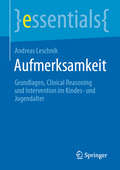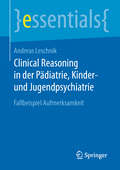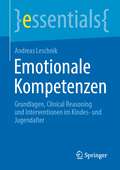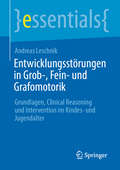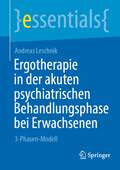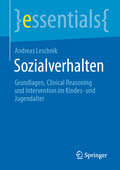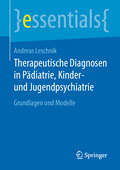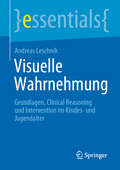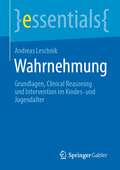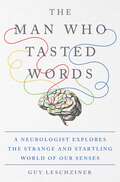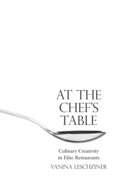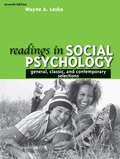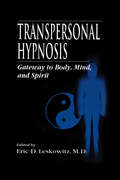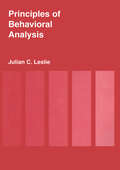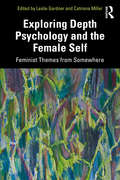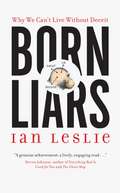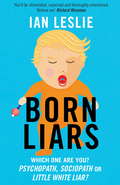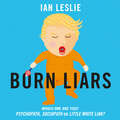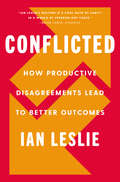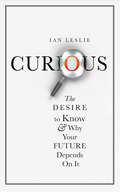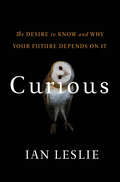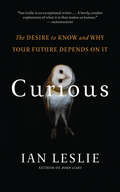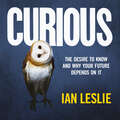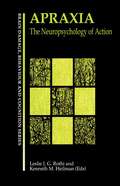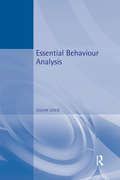- Table View
- List View
Aufmerksamkeit: Grundlagen, Clinical Reasoning und Intervention im Kindes- und Jugendalter (essentials)
by Andreas LeschnikIn diesem essential werden die Grundlagen der Aufmerksamkeit erklärt. Außerdem gibt es einen kurzen Überblick über die kindliche Entwicklung von aufmerksamem Verhalten. Zudem werden Faktoren aufgezählt, die die Aufmerksamkeit beeinflussen können. Im weiteren Verlauf wird das hypothetisch-deduktive Clinical Reasoning zum Erstellen einer therapeutischen Diagnose bei Kindern und Jugendlichen mit Störungen der Aufmerksamkeit eingesetzt. Am Ende bietet dieses essential Interventionsmöglichkeiten für Kinder und Jugendliche, um die Komponenten der Aufmerksamkeit zu verbessern.
Clinical Reasoning in der Pädiatrie, Kinder- und Jugendpsychiatrie: Fallbeispiel Aufmerksamkeit (essentials)
by Andreas LeschnikAnhand eines Fallbeispiels soll in diesem Buch aufgezeigt werden, wann und in welcher Reihenfolge verschiedene Modelle im Prozess der therapeutischen Diagnosestellung eingesetzt werden können.
Emotionale Kompetenzen: Grundlagen, Clinical Reasoning und Interventionen im Kindes- und Jugendalter (essentials)
by Andreas LeschnikIn diesem essential werden die wissenschaftlichen Grundlagen von Emotionen erklärt. Außerdem gibt es einen kurzen Überblick über die kindliche Entwicklung von emotionalem Verhalten. Zudem werden Faktoren aufgezählt, die die Emotionalität beeinflussen können. Im weiteren Verlauf wird das hypothetisch-deduktive Clinical Reasoning zum Erstellen einer therapeutischen Diagnose bei Kindern und Jugendlichen mit Störungen der Emotionalität eingesetzt. Am Ende bietet dieses essential Interventionsmöglichkeiten für Kinder und Jugendliche, um das emotionale Verhalten zu verbessern.
Entwicklungsstörungen in Grob-, Fein- und Grafomotorik: Grundlagen, Clinical Reasoning und Intervention im Kindes- und Jugendalter (essentials)
by Andreas LeschnikIn diesem essential werden die umschriebenen Entwicklungsstörungen der Grob-, Fein-, Grafo- und Schreibmotorik in Ihren Grundlagen und Entwicklungsstufen kurz erfasst. Im weiteren Verlauf bietet es die Möglichkeit die o.g. Entwicklungsstörungen mit dem hypothetisch-deduktiven Clinical Reasoning zu erfassen und Therapiemöglichkeiten aufzuzeigen.
Ergotherapie in der akuten psychiatrischen Behandlungsphase bei Erwachsenen: 3-Phasen-Modell (essentials)
by Andreas LeschnikDie Ergotherapie in der akuten Krankheitsphase einer psychiatrischen Behandlung ist eine Herausforderung für den Patienten, da er sehr stark unter den Symptomen und der medikamentösen Einstellung leidet. Zudem kommt mit durchschnittlich 24,7 Tage im Krankenhaus eine kurze Verweilzeit hinzu. Welches ergotherapeutische Behandlungskonzept macht also Sinn? Dieses essential bietet mit seinem 3-Phasen-Modell ein Grundgerüst, wie man mit welchen Modellen Patientendaten erheben, Interventionen setzen und Evaluationen durchführen kann und zwar nach jeder Therapieeinheit, um festzustellen, welche Fortschritte der Patient macht und ob die Therapie neu angepasst werden muss.
Sozialverhalten: Grundlagen, Clinical Reasoning und Intervention im Kindes- und Jugendalter (essentials)
by Andreas LeschnikIn diesem essential werden die Grundlagen des Sozialverhaltens erklärt. Außerdem gibt es einen kurzen Überblick über die kindliche Entwicklung des Sozialverhaltens. Im weiteren Verlauf wird das hypothetisch-deduktive Clinical Reasoning zum Erstellen einer therapeutischen Diagnose bei Kindern und Jugendlichen mit Störungen des Sozialverhaltens eingesetzt. Am Ende bietet dieses essential Interventionsmöglichkeiten für Kinder und Jugendliche mit Störungen des sozialen Verhaltens.
Therapeutische Diagnosen in Pädiatrie, Kinder- und Jugendpsychiatrie: Grundlagen und Modelle (essentials)
by Andreas LeschnikIn Deutschland haben wir zwei Klassifikationsmodelle, um Kinder mit Problemen und Ressourcen ganzheitlich zu erfassen. Zum einen die ICD-10 (International Statistical Classification of Diseases and Related Health Problems 10. Revision) und zum anderen die ICF-CY (International Classification of Functioning, Disability and Health. Children and Youth Version). In der Vergangenheit hat sich aber gezeigt, dass die ICD-10 und die ICF-CY nicht in Kombination miteinander benutzt werden. Somit entsteht automatisch eine nicht vollständige Diagnostik. Beide Klassifikationsmodelle wurden aber so entwickelt, dass sie aufeinander abgestimmt sind und sich somit ergänzen. Allerdings haben diese Model keine Leitlinie, wann und wo man sie in einem Prozess zum Erstellen einer therapeutischen Diagnose einsetzt. Dieses Buch soll aufzeigen, welche Modelle man benötigt, um eine therapeutische Diagnose zu erstellen.
Visuelle Wahrnehmung: Grundlagen, Clinical Reasoning und Intervention im Kindes- und Jugendalter (essentials)
by Andreas LeschnikIn diesem essential werden die Grundlagen des physiologischen/neuronalen Sehens und die Wahrnehmungsverarbeitung erklärt. Außerdem gibt es einen kurzen Überblick über die kindliche Entwicklung des visuellen Systems. Weiterhin zeigt dieses essential auf, welche Formen von visuellen Wahrnehmungsstörungen es gibt. Im weiteren Verlauf wird das hypothetisch-deduktive Clinical Reasoning zum Erstellen einer therapeutischen Diagnose bei Kindern und Jugendlichen mit visuellen Wahrnehmungsstörungen eingesetzt. Abschließend bietet dieses essential Interventionsmöglichkeiten für Kinder und Jugendliche mit visuellen Wahrnehmungsstörungen.
Wahrnehmung: Grundlagen, Clinical Reasoning und Intervention im Kindes- und Jugendalter (essentials)
by Andreas LeschnikIn diesem essential werden die Grundlagen der Wahrnehmung erklärt. Außerdem gibt es einen kurzen Überblick über die kindliche Entwicklung der Wahrnehmung. Zudem werden Faktoren aufgezählt, die die Wahrnehmung beeinflussen können. Im weiteren Verlauf wird das hypothetisch-deduktive Clinical Reasoning zum Erstellen einer therapeutischen Diagnose bei Kindern- und Jugendlichen mit Wahrnehmungsstörungen eingesetzt. Am Ende bietet dieses essential Interventionsmöglichkeiten für Kinder und Jugendliche, um einzelne Wahrnehmungsfelder zu verbessern.
The Man Who Tasted Words: A Neurologist Explores the Strange and Startling World of Our Senses
by Dr. Guy LeschzinerIn The Man Who Tasted Words, Guy Leschziner leads readers through the senses and how, through them, our brain understands or misunderstands the world around us.Vision, hearing, taste, smell, and touch are what we rely on to perceive the reality of our world. Our senses are the conduits that bring us the scent of a freshly brewed cup of coffee or the notes of a favorite song suddenly playing on the radio. But are they really that reliable? The Man Who Tasted Words shows that what we perceive to be absolute truths of the world around us is actually a complex internal reconstruction by our minds and nervous systems. The translation into experiences with conscious meaning—the pattern of light and dark on the retina that is transformed into the face of a loved one, for instance—is a process that is invisible, undetected by ourselves and, in most cases, completely out of our control.In The Man Who Tasted Words, neurologist Guy Leschziner explores how our nervous systems define our worlds and how we can, in fact, be victims of falsehoods perpetrated by our own brains. In his moving and lyrical chronicles of lives turned upside down by a disruption in one or more of their five senses, he introduces readers to extraordinary individuals, like one man who actually “tasted” words, and shows us how sensory disruptions like that have played havoc, not only with their view of the world, but with their relationships as well. The cases Leschziner shares in The Man Who Tasted Words are extreme, but they are also human, and teach us how our lives and what we perceive as reality are both ultimately defined by the complexities of our nervous systems.
At the Chef's Table: Culinary Creativity in Elite Restaurants
by Vanina LeschzinerThis book is about the creative work of chefs at top restaurants in New York and San Francisco. Based on interviews with chefs and observation in restaurant kitchens, the book explores the question of how and why chefs make choices about the dishes they put on their menus. It answers this question by examining a whole range of areas, including chefs' careers, restaurant ratings and reviews, social networks, how chefs think about food and go about creating new dishes, and how status influences their work and careers. Chefs at top restaurants face competing pressures to deliver complex and creative dishes, and navigate market forces to run a profitable business in an industry with exceptionally high costs and low profit margins. Creating a distinctive and original culinary style allows them to stand out in the market, but making the familiar food that many customers want ensures that they can stay in business. Chefs must make choices between these competing pressures. In explaining how they do so, this book uses the case study of high cuisine to analyze, more generally, how people in creative occupations navigate a context that is rife with uncertainty, high pressures, and contradicting forces.
Readings In Social Psychology: General, Classic, And Contemporary Selections
by Wayne A. LeskoThis collection of readings gives students exposure to a wide variety of perspectives in the field of social psychology. Each of the fifteen chapters begins with an introduction and is followed by three articles: one general (popular), one classic, and one contemporary. The articles are followed by critical questions designed to facilitate comprehension and encourage discussion. The use of both popular readings and research articles provides students with a broad range of views and theories within the discipline of social psychology. The topical organization of the collection directly parallels Baron/Byrne/Branscombe's Social Psychology, Eleventh Edition. However, Readings in Social Psychology can be used with any social psychology textbook, or as a stand-alone reader in courses that do not use full textbooks.
Transpersonal Hypnosis
by Eric D. LeskowitzTranspersonal Hypnosis presents a multidimensional, energy-based view of human awareness that integrates disparate biological, psychological, and spiritual therapeutic techniques. Each of the chapters - all from world-renowned contributors - includes both a historical overview and the theory behind the development of each technique. The authors emphasize experimental studies that examine the validity of using hypnotically accessed transpersonal states of consciousness to heal the body, mind, and spirit. Several clinical vignettes highlight the types of medical and psychological symptoms responsive to these approaches. The emerging field of spiritually-influenced treatments is transforming the practice of medicine.
Principles of behavioural analysis
by LeslieFirst published in 1996. Routledge is an imprint of Taylor & Francis, an informa company.
Exploring Depth Psychology and the Female Self: Feminist Themes from Somewhere
by Leslie Gardner and Catriona MillerExploring Depth Psychology and the Female Self: Feminist Views from Somewhere presents a Jungian take on modern feminism, offering an international assessment with a dynamic political edge which includes perspectives from both clinicians and academics. Presented in three parts, this unique collection explores how the fields of gender and politics have influenced each other, how myth and storytelling craft feminist narratives and how public discussion can amplify feminist theory. The contributions include some which are traditionally theoretical in tone, and some which are uniquely personal, but all work to encounter the female self as an active entity. The book as a whole offers a multi-faceted and interdisciplinary approach to feminism and feminist issues from contemporary voices around the world, as well as a critique of Jung’s essentialist notion of the feminine. Exploring Depth Psychology and the Female Self will offer insightful perspectives to academics and students of Jungian and post-Jungian studies, gender studies and politics. It will also be of great interest to Jungian analysts and psychotherapists, and analytical psychologists.
Born Liars: Why We Can't Live Without Deceit
by Ian LeslieLying is an intrinsic part of our social fabric, but it is also a deeply problematic and misunderstood aspect of what makes us human. Ian Leslie takes us on a fascinating journey that makes us question not only our own relationship to the truth, but also virtually every daily encounter we have. On the way he dissects the history of the lie detector, how parents affect their children’s attitude to lying (and vice versa), Who Wants to Be a Millionaire?, the philosophical ambiguity of telling the truth, Bill Clinton’s presentational prowess, Wonder Woman’s lasso of truth, and why we should be wary of anyone with more than 150 Facebook friends. Born Liars is thought-provoking, anecdotally driven narrative nonfiction at its best. Ian Leslie’s intoxicating blend of anthropology, biology, cultural history, philosophy, and popular psychology belies a serious central message: that humans have evolved and thrived in large part because of their ability to deceive.
Born Liars: We All Do It But Which One Are You - Psychopath, Sociopath or Little White Liar?
by Ian LeslieWe all do it - how to be a better liar, spot a charlatan and tell the difference between truth and fictionIn Born Liars, Ian Leslie takes the reader on an exhilarating tour of ideas that brings the latest news about deception back from the frontiers of psychology, neuroscience, and philosophy, and explores the role played by lies - both black and white - in our childhoods, our careers, and our health, as well as in advertising, politics, sport and war. Drawing on thinkers as varied as Augustine, Charles Darwin, Sigmund Freud and Joni Mitchell, the author argues that, far from being a bug in the human software, lying is central to who we are; that we cannot understand ourselves without first understanding the dynamics of deceit. After reading Born Liars you'll never think about lies - or life - in quite the same way again.
Born Liars: Why We Can't Live Without Deceit
by Ian LeslieWe all do it - how to be a better liar, spot a charlatan and tell the difference between truth and fictionIn Born Liars, Ian Leslie takes the reader on an exhilarating tour of ideas that brings the latest news about deception back from the frontiers of psychology, neuroscience, and philosophy, and explores the role played by lies - both black and white - in our childhoods, our careers, and our health, as well as in advertising, politics, sport and war. Drawing on thinkers as varied as Augustine, Charles Darwin, Sigmund Freud and Joni Mitchell, the author argues that, far from being a bug in the human software, lying is central to who we are; that we cannot understand ourselves without first understanding the dynamics of deceit. After listening to Born Liars you'll never think about lies - or life - in quite the same way again.(P)2020 Quercus Editions Limited
Conflicted: How Productive Disagreements Lead to Better Outcomes
by Ian LeslieDrawing on advice from the world’s leading experts on conflict and communication—from relationship scientists to hostage negotiators to diplomats—Ian Leslie, a columnist for the New Statesman, shows us how to transform the heat of conflict, disagreement and argument into the light of insight, creativity and connection, in a book with vital lessons for the home, workplace, and public arena.For most people, conflict triggers a fight or flight response. Disagreeing productively is a hard skill for which neither evolution or society has equipped us. It’s a skill we urgently need to acquire; otherwise, our increasingly vociferous disagreements are destined to tear us apart. Productive disagreement is a way of thinking, perhaps the best one we have. It makes us smarter and more creative, and it can even bring us closer together. It’s critical to the success of any shared enterprise, from a marriage, to a business, to a democracy. Isn’t it time we gave more thought to how to do it well?In an increasingly polarized world, our only chance for coming together and moving forward is to learn from those who have mastered the art and science of disagreement. In this book, we’ll learn from experts who are highly skilled at getting the most out of highly charged encounters: interrogators, cops, divorce mediators, therapists, diplomats, psychologists. These professionals know how to get something valuable – information, insight, ideas—from the toughest, most antagonistic conversations. They are brilliant communicators: masters at shaping the conversation beneath the conversation. They know how to turn the heat of conflict into the light of creativity, connection, and insight. In this much-need book, Ian Leslie explores what happens to us when we argue, why disagreement makes us stressed, and why we get angry. He explains why we urgently need to transform the way we think about conflict and how having better disagreements can make us more successful. By drawing together the lessons he learns from different experts, he proposes a series of clear principles that we can all use to make our most difficult dialogues more productive—and our increasingly acrimonious world a better place.
Curious: The Desire to Know and Why Your Future Depends on It
by Ian LeslieA fascinating multi-disciplinary analysis of why curiosity makes the world go round.'A lovely, erudite exploration of what it is that makes us human' - Independent on Sunday'I have no special talents. I am only passionately curious' Albert Einstein. Everyone is born curious. But only some retain the habits of exploring, learning and discovering as they grow older. Which side of the 'curiosity divide' are you on? In Curious Ian Leslie makes a passionate case for the cultivation of our desire to know. Curious people tend to be smarter, more creative and more successful. But at the very moment when the rewards of curiosity have never been higher, it is misunderstood and undervalued, and increasingly practised only by a cognitive elite. Drawing on fascinating research from psychology, sociology and business, Curious looks at what feeds curiosity and what starves it, and uncovers surprising answers. Curiosity isn't a quality you can rely on to last a lifetime, but a mental muscle that atrophies without regular exercise. It's not a gift, but a habit that parents, schools, workplaces and individuals need to nurture if it is to thrive. Filled with inspiring stories, case studies and practical advice, Curious will change the way you think about your own mental life, and that of those around you.
Curious: The Desire to Know and Why Your Future Depends On It
by Ian LeslieToday it seems we have the world at our fingertips. Thanks to smartphones and tools such as Google and Wikipedia, we’re able feed any aspect of our curiosity instantly. But does this mean we are actually becoming more curious? Absolutely not. In Curious, Ian Leslie argues that true curiosity--the sustained quest for understanding that begets insight and innovation--is becoming increasingly difficult to harness in our wired world. We confuse ease of access to information with curiosity, and risk losing our ability to ask questions that extend our knowledge gap rather than merely filling it. Worst of all, this decline in curiosity has led to a decline in empathy and our ability to care about those around us. Combining the latest science with an urgent call to cultivate curious minds, Curious draws on psychology, social history, and popular culture to show that being deeply curious is our only hope when it comes to solving current crises--as well as an essential part of being human.
Curious: The Desire to Know and Why Your Future Depends On It
by Ian LeslieThe latest from Ian Leslie, the author of Born Liars, a Globe and Mail Top 100 Book, is a fascinating look at the human characteristic of curiosity — our extraordinary capacity to take pleasure in discovering, learning, and understanding.Curious shows how the practice of “deep curiosity” — persistent, self-reflective seeking of knowledge and insight — is key to the success of our careers, the happiness of our children, the strength of our relationships, and the progress of societies. But it also argues that it is a fragile quality, which wanes and waxes over time, and that we take it for granted at our peril. Ian Leslie proposes that the Internet is opening up a “curiosity gap,” by exacerbating the divide between those with a large cognitive appetite, and those happy knowing no more than they have to know; between the curious and the incurious. He draws on many sources and stories to illustrate his points: Benjamin Franklin at Portsmouth Harbour studying the effect of oil on choppy waters; a bored Galileo distracting himself in a Pisa cathedral by observing the swinging of a recently lit lamp; Leonardo da Vinci doodling ideas in his notebook; Google co-founder Larry Page’s thoughts on the perfect search engine; the invention of the microwave oven; the advantages of your local bookseller over Amazon’s algorithms; a reassessment of Donald Rumsfeld’s defense strategy, and many more.Rich, textured, and exciting, Curious is a new take on the most absorbing human trait of all.
Curious: The Desire to Know and Why Your Future Depends on It
by Ian LeslieA fascinating multi-disciplinary analysis of why curiosity makes the world go round.'A lovely, erudite exploration of what it is that makes us human' - Independent on Sunday'I have no special talents. I am only passionately curious' Albert Einstein. Everyone is born curious. But only some retain the habits of exploring, learning and discovering as they grow older. Which side of the 'curiosity divide' are you on? In Curious Ian Leslie makes a passionate case for the cultivation of our desire to know. Curious people tend to be smarter, more creative and more successful. But at the very moment when the rewards of curiosity have never been higher, it is misunderstood and undervalued, and increasingly practised only by a cognitive elite. Drawing on fascinating research from psychology, sociology and business, Curious looks at what feeds curiosity and what starves it, and uncovers surprising answers. Curiosity isn't a quality you can rely on to last a lifetime, but a mental muscle that atrophies without regular exercise. It's not a gift, but a habit that parents, schools, workplaces and individuals need to nurture if it is to thrive. Filled with inspiring stories, case studies and practical advice, Curious will change the way you think about your own mental life, and that of those around you.(P)2020 Quercus Editions Limited
Apraxia: The Neuropsychology of Action (Brain, Behaviour and Cognition)
by Leslie J. Gonzalez Rothi Kenneth M. HeilmanThe purpose of this book is to provide the reader with a perspective on apraxia that considers a link between the pathology of apraxia and normal motor skill. In addition, it is the intention of the authors to provide information that is theoretically interesting as well as clinically applicable. The book is a collection of papers by various authors working in the area of apraxia, almost exclusively with limb aparaxia specifically. Beginning with Hugo Liepman's work of the late 19th century, a cognitive neuropsychological model of limb apraxia is reviewed, the use of new technologies that are informative about the mechanisms of limb praxis are discussed, and issues related to research as well as clinical assessment/management of the disorder are provided. While acquired limb apraxia is the focus of the book, there are also chapters on handedness, developmental apraxia of speech, and disorders of handwriting.
Essential Behaviour Analysis (Essential Psychology)
by Julian LeslieSince the so-called 'cognitive revolution' in psychology in the 1960s, it has often been said that 'behaviourism is dead'. This book demonstrates why this is not the case and how the behavioural approach has continued to flourish.Leslie begins by summarising the behavioural approach to psychology and shows how it differs from other contemporary and cognitive approaches. The basic principles of the discipline are outlined and linked to major areas of interest and importance, such as behavioural neuroscience, resolution of human behavioural problems, and human language and cognition.Behaviour analysis is thus shown to contribute to our developing understanding of the relationship between brain systems and psychological problems, to provide an effective and scientifically based approach to human behavioural problems and to deal with topics central to modern psychology.
